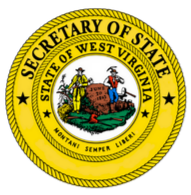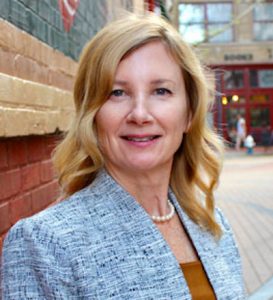The Education Alliance bringing together leaders from across West Virginia to discuss development of a strong talent pipeline
By Autumn Shelton
West Virginia Press Association
CHARLESTON, W.Va. – West Virginia’s continued economic growth requires the presence of a talented local workforce.
That is why members of The Education Alliance, a Charleston-based non-profit, will bring together over 200 business leaders, innovators, policy makers and educators from across West Virginia to share strategies on how to develop that talent during the upcoming “Pathways to the Future–Strategies to Grow Your Own” West Virginia Education Summit.
According to Dr. Amelia Courts, president and CEO of The Education Alliance, there is an ever-increasing demand for a “strong talent pipeline” to fill vacant statewide positions as well as a growing need to ensure that students are ready for workforce opportunities following graduation.
“Partnerships are a key component to strong Grow Your Own programs,” Courts said. “That is why it’s important to have different audience groups in the same room, hearing the same message. Those who attend the summit will have the chance to talk, and develop action steps they may take back to their communities as they develop these partnerships.”
Courts explained that the pandemic created challenges for those in economic development. However, she said it seems those days are behind us.
“We are actually in a very optimistic place right now,” Courts noted. “We have a lot of new companies coming to us. We have a lot of forward momentum in terms of our economy, and also with the general self-respect we have for our beautiful environment. All of that is trending in the right direction.”
Courts further explained that the pandemic led to increased “educator-burnout and fatigue,” saying “that is certainly showing up in the number of (teacher) vacancies that we see, and also in the decline of students enrolling in teacher preparation programs.”
In order to address these issues, the West Virginia Department of Education (WVDE) became the second state, after Tennessee, to launch the “Grow Your Own” initiative, designed to give high school students an early start on earning college credit and gaining teacher experience, Courts added.
During the summit, David Donaldson, managing partner at the National Center for Grow Your Own at Harvard University, will serve as keynote speaker.
Along with his colleagues, Donaldson’s work with the Tennessee Department of Education has been recognized by The White House, Secretary of Education Miguel Cardona and Secretary of Labor Marty Walsh. While in Tennessee, Donaldson, and other founding members of the Grow Your Own team, were the first to receive approval from the U.S. Department of Labor to “recognize the occupation of a K-12 teacher to be eligible for registered apprenticeship.”
Today, the Grow Your Own initiative in Tennessee has been spread to 65 school districts and 14 educator preparation providers, Donaldson stated in a recent interview. Over 670 aspiring teachers now have the opportunity to become a teacher at no cost, while getting paid.
He said he looks forward to meeting with those in West Virginia during the summit to spread awareness of the Grow Your Own model.
“At the National Center for Grow Your Own, we want to create a world where an aspiring educator can become a teacher for free, and get paid to do so,” Donaldson said. “It has never made sense to me that one has to pay tuition to a university in their final semester, to then provide free labor to a school district as part of the student teaching process.”
He will join Dr. Carla Warren, WVDE director of educator development and support, for a fireside chat.
According to Warren, 31 counties in West Virginia are participating in this year’s Grow Your Own pilot program in partnership with 16 institutions of higher learning. A total of 250 students statewide are currently enrolled in the program.
“West Virginia is addressing the teacher shortage as an economic development challenge that must be addressed by all stakeholders, rather than a problem educators alone are tasked to resolve,” Warren said. “Our vision for West Virginia students is one in which we pay them while providing a cost free pathway to earn teacher licensure and return to their communities to fill classrooms as certified teachers.”
She said she hopes that educators and business leaders who attend the summit will “walk away with a great understanding of the challenges we face to address teacher shortages in West Virginia” as well as the “challenges and barriers West Virginia children are facing.”
Courts added, “If we don’t have teachers in the classroom that are qualified and excited and equipped to teach our students, then our state’s future is really going to be impacted.”
She said the future of education is giving students, even younger students, the opportunities for learning through real-world scenarios.
“So that means we need all hands on deck. We need our business communities to be sending positive respect to the teaching profession. We need our teachers to understand their role in helping students be ready for careers, and connect their curriculum with real-world opportunities. The model we are embracing is about providing students with quality experiences,” she said, adding that it’s important for students to learn on-site in a well-supported environment that offers good pay.
To showcase the progress made thus far, students from throughout the state will be on-hand to discuss projects they are working on, including students from Putnam and Cabell counties who worked for the inaugural Toyota 4T Academy, a summer internship program which taught the process of assembling bicycles. Once built, the bicycles were donated to children in foster care, Courts said. Also, students from Sissonville High School in Kanawha County will discuss what it was like to work with those at Appalachian Power as they brainstormed best locations for EV charging stations.
“Research says that it takes seven touches for a student to truly understand a career,” Courts explained. “Students are interested in experiential learning, and our businesses are ready and prepared to roll up their sleeves to help provide these experiences.”
“To me, it’s exciting that we are innovating in this way,” she continued. “The goal of having the summit is to get the word out so more people will be willing to embrace this model and spread it. It has tremendous potential to reshape how we think of the four walls of the classroom.”
In addition to Donaldson, Dr. Russel Dyer, director of Cleveland City Schools in Tennessee, will serve as policy speaker during the summit.
Also, Michael Graney, executive director of the West Virginia Department of Economic Development, will serve as moderator for an industry panel discussion. Panel participants include Dr. Sara Lewis-Stankus, deputy state superintendent of West Virginia schools; David Rosier, president of Toyota Manufacturing WV; Abby Reale, director of advocacy at Mountain Health Network; and Aaron Walker, president of Appalachian Power.
This year’s summit will take place on Tuesday, Oct. 18, from 9 a.m. until 2 p.m. at the Embassy Suites in Charleston. Everyone is invited to attend the summit.
To purchase tickets, visit educationalliance.org or contact The Education Alliance at 304-342-7850. Scholarships are available for educators who wish to attend.







